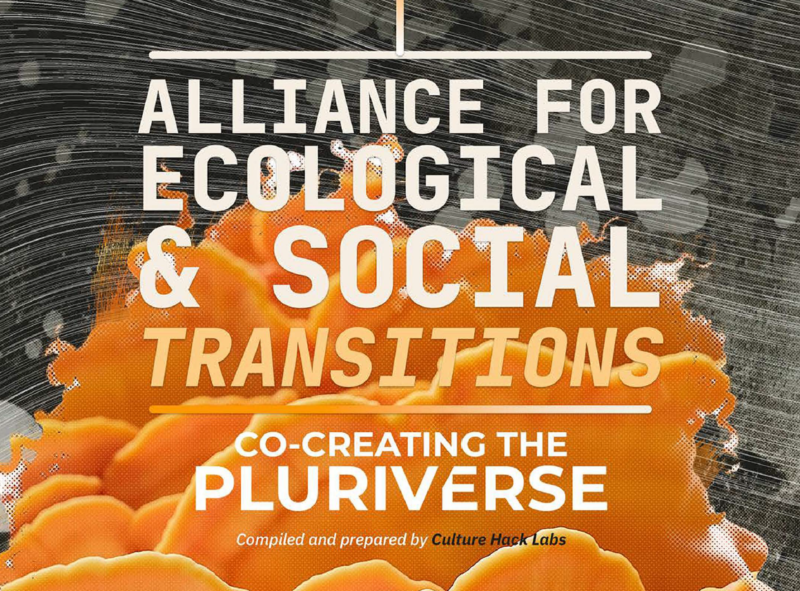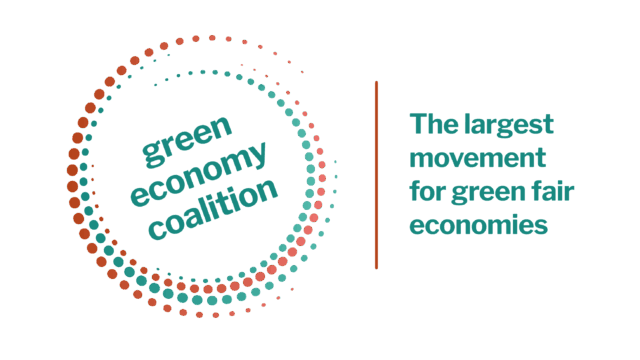Ecological and social transitions - co-creating the pluriverse
In the face of climate collapse, trust in governments has broken down. How can we best unite social movements to approach this challenge?

We live in unprecedented times. Centuries of planetary exploitation have left us with a climate crisis, extreme heat waves resulting in forest fires and excess deaths, loss of biosphere integrity, widespread pollution, and ocean acidification. We are rapidly exceeding the safe zones on all of the planetary boundaries identified by The Stockholm Resilience Center,1 threatening the ongoing existence of human life on earth.
Since the beginning of the industrial revolution, the earth’s temperature has risen by 1 degrees Celsius, and is set to exceed 2 degrees by the end of the 21st century2, with catastrophic consequences for human and other life forms on this planet. In August 2021, the Intergovernmental Panel on Climate Change (the IPCC), issued an imminent warning: if we do not change the current rates of carbon emission by 2030, the damage would be irreversible and in 2050, human life on the planet could be existentially threatened.
Global crises of recent years have highlighted the interconnectedness of our collective challenges and exposed the flaws in our social systems. From the COVID-19 pandemic’s connections to biodiversity loss and cross-species virus transmission3 to the war in Ukraine’s linkages to the world’s dependence on Russian oil, to the increase in record-breaking climate change events,4 we are constantly reminded of the need to transform our relationship with each other and the planetary ecosystem on which we depend.
The Social Contract: no longer fit for purpose?
From its origins in Western political theory of the 17th century, the modern social contract has been in crisis. Originally conceived to regulate the relationship between state and citizenry, it is clear that trust in governments to govern well in the face of ecological crisis has been broken, and that there is no clear consensus on where to go from here.
Considering these challenges and the urgency to effectively address the climate crisis, the Green Economy Coalition (GEC), a global alliance of over 60 organisations committed to accelerating an inclusive and sustainable transition, wants to support civil society movements that are collectively pushing for the transition. The GEC wishes to foster a space where Governments, institutions and policymakers not only listen but also co-create with people, civil society organisations and activist groups.
In 2021, the GEC asked Culture Hack Labs to study narratives related to the transition that are currently circulating across social movements. GEC want to identify narratives that are redefining the parameters of the relationships between key stakeholders in society and moving society towards a new model: a new social contract.
Footnotes
Stockholm Resilience Centre, The nine planetary boundaries, 2015. https://www.stockholmresilienc...; Will Steffen et al, "Planetary boundaries: Guiding human development on a changing planet." Science 347,1259855 (2015). DOI: 10.1126/science.1259855
Climate.gov, Climate Change: Global Temperature Projections, 2012. https://www.climate.gov/news-f...
Karl Gruber, "Preventing zoonotic pandemics: are we there yet?" The Lancet Vol 2, Issue 8, August 2021
Jeff Masters, Yale Climate Connections. "The top 10 global weather and climate change events of 2021." January 11, 2022. https://yaleclimateconnections...


